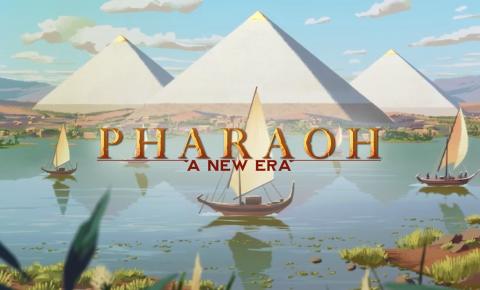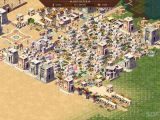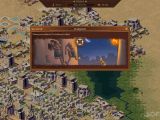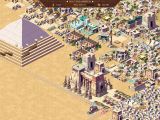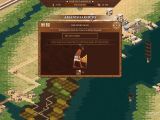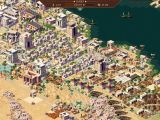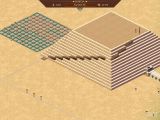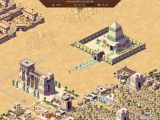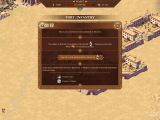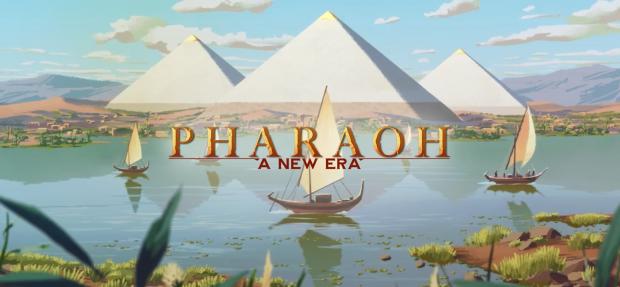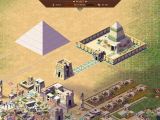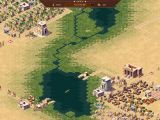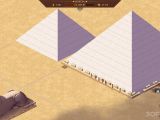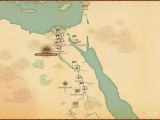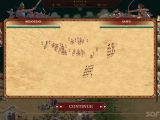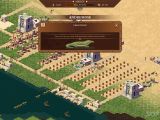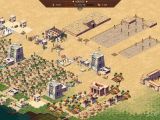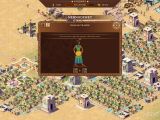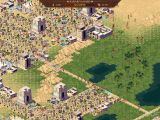I have mines for the limestone needed for my pyramid complex project but I have to trade for the plain stone blocks that make up its core. And that puts a strain on my budget, which already has to sustain imports to increase my citizens’ quality of life. My secret weapon is the almost unquenchable desire for beer in other Egyptian cities, which I am working hard to make money from.
Of course, I also need the Nile to collaborate because barley farms need to supply my breweries. Osiris is getting a lot of attention when it comes to new temples and festivals, but I cannot afford to upset the rest of the pantheon.
That means more festivals, so more spending. The catch is the grand ones also require a lot of beer. So, my city really needs a new industry for a high-demand export product. And, until I set that up, the plain stone import pipeline needs to be temporarily shut down.
Pharaoh: A New Era was developed by Triskell Interactive, with publishing from Dotemu. I played the game on the PC using Steam. The game is a modern remake of the classic city builder, designed to appeal to modern audiences while keeping the core mechanics intact.
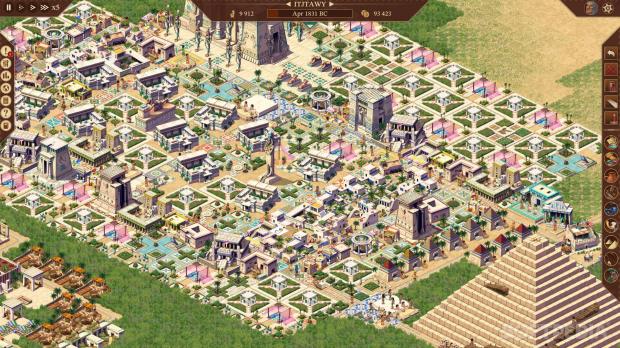
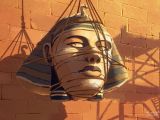
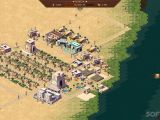
The name will be instantly familiar to anyone who loved the classic era of the city-building genre, dominated by Impressions and Sierra. Players will become the leader of Ancient Egypt, leading the nation toward greatness. There are more than 50 missions to engage with and the Cleopatra: Queen of the Nile expansion is included.
Pharaoh is not a historically accurate simulation but it manages to feel authentic. Players will build the pyramids and the Sphinx and will interact with all aspects of Egyptian society, from its gods to their foreign relations. It’s enough to make anyone feel curious about the rise and decline of this political entity. Each mission briefing offers enough context to get players engaged and I bet plenty will then spend a lot of time searching for more details.
The narrative takes players from humble beginnings (the first few missions teach the core mechanics) but the challenges quickly escalate. Creating a thriving city requires good planning skills but also the ability to adapt and respond to developing situations. And that’s before factoring in the constant requests for aid from Pharaoh and other cities and the need to support the construction of impressive monuments.
To get there, players will start off by putting down houses. It is then time to add sources of clean water, produce food, and put down the bazaars to distribute it. Some missions feature classic farming or focus on fishing to provide sustenance. But Pharaoh is at its most interesting when floodplain farming is involved.
The Nile covers certain areas of the map each year, creating rich soil that can support massive farms powered by work camps. Players will grow everything from wheat to figs to barley to linen. But the massive river is unpredictable and a solid food supply requires spare capacity and contingencies.
Or a very good connection to Osiris, one of the five gods. All of them want temples, the more expensive the better. But constant festivals are required to secure their powerful blessings. And those cost money.
Pharaoh asks players to focus on creating at least one lucrative industry as quickly as possible. Find the most in-demand good, open up a trade root, and put your citizens to work. Expanding the workforce to support all this requires giving them enough goods and amenities to get them to evolve. And they will need everything from temple access to good medical coverage to expensive educational options.
To build pyramids, gamers will have to create a parallel industry that only serves the monuments. Players will have to coral walkers and avoid a boom-and-bust cycle to meet everything that the kingdom of Egypt asks of them.
A New Era has re-designed the military element of Pharaoh. Battles take place on a separate screen, which I like, and players no longer directly control their units. This can make battle-focused missions harder because it eliminates some strategies to deal with bigger forces.
The biggest problem with the old Pharaoh, which the new one does not fully solve, is linked to win conditions. It is sometimes hard to understand exactly how to get an extra five-point boost to Culture. If you refuse too many requests and don’t have Ra as an active deity, it can be tough to boost the Kingdom rating.
Pharaoh: A New Era also adds a range of settings that can make the game more approachable for newcomers. The biggest one is a way to eliminate walkers, replacing them with a labor pool that buildings draw from (for even more predictability a fixed worker-to-population ratio can be activated). The rest of the new options can be found in Settings menu. It’s a great idea that allows both newcomers and veterans to focus on the aspects of the experience they enjoy.
The missions selector also makes it easy to play the branching missions you did not choose during the campaign or simply go back and attempt to do better. There are also options to set up a free-play map and simply build the Egyptian city of your dreams.
Pharaoh: A New Era keeps the impressive visual style of the original and updates it for the modern era. It looks better than my memories of the classic experience. All the buildings have clear visual identities, the walkers might lack a ton of detail but exhibit personality. The monuments, especially the pyramids, are beautifully presented. The new user interface is easy to master and offers plenty of information.
The sound design is even better than the graphics. The soundtrack is entirely re-orchestrated and performed using traditional instruments. It’s filled with bangers and is good enough to listen to outside of the game. The voice work for the citizens is also good, with some surprisingly clever lines and deliveries.
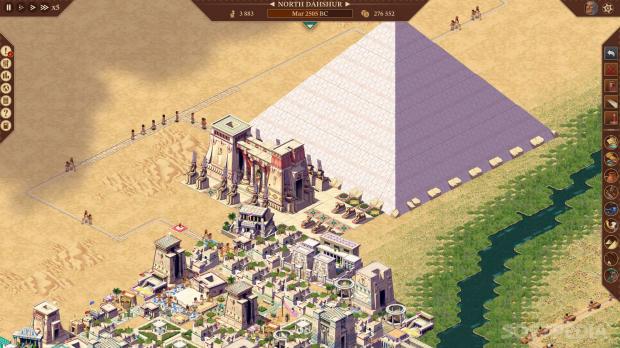

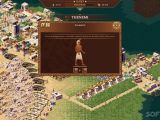
The Good
- Classic city building mechanics
- Pyramid work
- Great soundtrack
The Bad
- Some gameplay quirks
- Warfare is still a weakness
- No new scenarios
Conclusion
The new options and the user interface improvement make the experience fully accessible to both newcomers and those who have already spent tens of hours with it. There are still a few weird gameplay elements but they feel like quirks more than problems. Pharaoh: A New Era is a great city builder with a lot of moving pieces and unique mechanics. Let’s hope that we get to build the Great Wall next.
A review key was provided by the publisher.
 14 DAY TRIAL //
14 DAY TRIAL // 